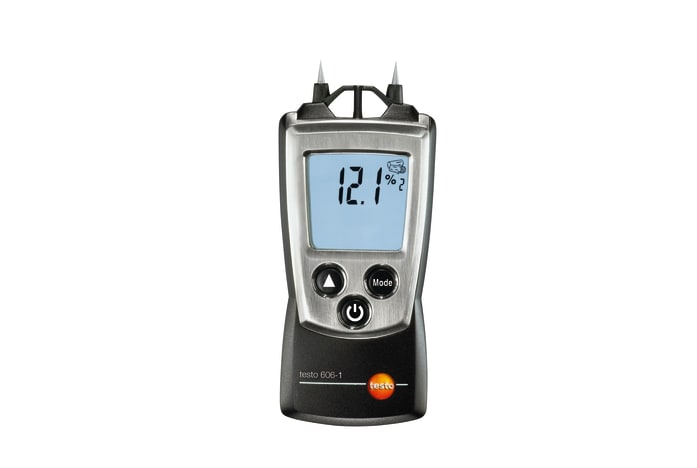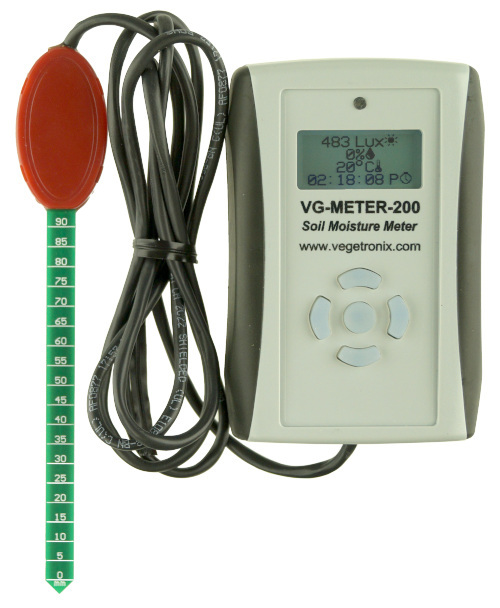Moisture Meter Reviews: Contrasting the most effective Versions for Expert and DIY Use
Moisture Meter Reviews: Contrasting the most effective Versions for Expert and DIY Use
Blog Article
The Ultimate Guide to Dampness Meters: A Comprehensive Review and Just How They Can Save You Money
In the world of building maintenance, building and construction, and numerous markets, the significance of accurately determining moisture degrees can not be overemphasized. Dampness meters work as essential devices in identifying and keeping an eye on moisture content in products, helping in avoiding pricey damages and making certain the high quality of products. Recognizing the subtleties of different kinds of dampness meters, their applications, and the possible cost-saving benefits they offer can be a game-changer for professionals and services alike. Discovering exactly how these tools can not only streamline procedures however also add to economic savings is a trip worth embarking on.
Kinds Of Wetness Meters
One common type is the pin-type dampness meter, which gauges the electric resistance between two pins placed into a product. Pinless dampness meters, on the various other hand, use electro-magnetic sensor plates to scan a larger area without triggering damage to the material's surface area.

Additionally, there are also specialty dampness meters created for particular materials like grain, soil, or hay. These meters supply precise dampness analyses tailored to the unique residential or commercial properties of the product being checked. Infrared moisture meters determine the thermal residential properties of a material to establish its wetness content non-invasively, making them beneficial for applications where pin or pinless meters may not be suitable. Understanding the different kinds of wetness meters offered can help industries pick the most ideal tool for their certain moisture dimension demands.

Advantages of Utilizing Wetness Meters
Dampness meters provide very useful advantages in precisely keeping an eye on and analyzing moisture levels in diverse products and atmospheres (Moisture Meter). Among the key benefits of utilizing wetness meters is the avoidance of possible damages brought on by excess moisture. By detecting and dealing with high wetness levels beforehand, wetness meters aid to stop mold and mildew growth, rot, and architectural damages in structures, conserving both time and cash on fixings. In addition, wetness meters help in making sure the top quality of products throughout building or production procedures. By accurately measuring moisture content, these tools help maintain the honesty of wood, drywall, concrete, and other materials, reducing the threat of defects or failings.
Additionally, making use of wetness meters can cause boosted power effectiveness. By determining locations with high moisture degrees, such as leakages or poor insulation, adjustments can be made to improve power conservation and decrease utility prices. In agricultural setups, wetness meters play an important role in optimizing plant returns by enabling farmers to monitor dirt wetness levels and make educated watering decisions. In general, the advantages of making use of dampness meters cover throughout different sectors, offering cost-efficient options and promoting better high quality control practices.
Just How to Choose the Right Dampness Meter
Picking the proper wetness meter involves thinking about essential elements such as material compatibility, measurement variety, and calibration precision. When picking a moisture meter, it's crucial to guarantee that the meter appropriates for the specific product you will be screening. Various materials have varying electrical residential or commercial properties that can influence moisture analyses, so choosing a meter made for your product is crucial for exact outcomes. Furthermore, take into consideration the dimension series of the moisture meter. Ensure that the meter can find dampness degrees within the array required for your applications. Calibration accuracy is an additional crucial element to maintain in mind. Choose a dampness meter with reliable calibration to make certain exact and regular analyses. Some meters might need regular calibration adjustments, so comprehending the calibration process is necessary. By thoroughly reviewing these elements, you can choose a moisture meter that meets your demands and gives accurate moisture dimensions view for your projects.
Correct Methods for Moisture Meter Use

Expense Cost Savings Via Moisture Meter Applications
How can the critical utilization of moisture meters cause significant price savings across numerous sectors? Wetness meters play an essential duty in price financial savings by preventing possible damages and making certain top quality control in different industries. In the agriculture industry, dampness meters help in identifying the ideal time for collecting crops, stopping over-drying or excess moisture that can influence the end product's top quality. This specific monitoring aids farmers stay clear of unneeded losses and optimize their return.
In a similar way, in building and construction, dampness meters aid stop expensive damages by discovering moisture levels in building products, such as timber or concrete, which can lead to architectural concerns otherwise dealt with without delay. By identifying issue locations early on, service providers can take corrective steps to avoid substantial fixings or replacements, ultimately conserving time and cash.
In addition, in the food handling industry, moisture meters are vital for keeping track of item top quality and guaranteeing conformity with security guidelines. By accurately measuring dampness material in foodstuff, producers can protect against spoilage, preserve quality, and decrease waste, leading to substantial cost savings. In general, the strategic go to my site application of dampness meters is an important financial investment that can cause significant cost decreases and improved efficiency across numerous markets.
Verdict
Finally, moisture meters are beneficial tools for measuring and identifying dampness degrees in different materials. By utilizing the ideal moisture meter and following appropriate techniques, users can effectively protect against expensive damages triggered by excess dampness. Purchasing a top quality dampness meter can result in substantial expense savings in the lengthy run by recognizing potential problems early on and allowing punctual removal. Eventually, dampness meters are crucial tools for maintaining the stability and longevity of materials and structures.
Dampness meters offer as crucial devices in discovering and checking moisture web content in materials, assisting in stopping costly problems and making certain the quality of products. Infrared wetness meters gauge the thermal homes of a product to establish its moisture content non-invasively, making them helpful for applications where pin or pinless meters may not be suitable.Wetness meters use important advantages in properly analyzing and checking wetness degrees in diverse materials and environments. In agricultural setups, moisture meters play a crucial role in maximizing crop yields by allowing farmers to keep track of soil moisture levels and make educated irrigation choices.In final thought, dampness meters are important devices for determining and detecting moisture degrees in numerous materials.
Report this page